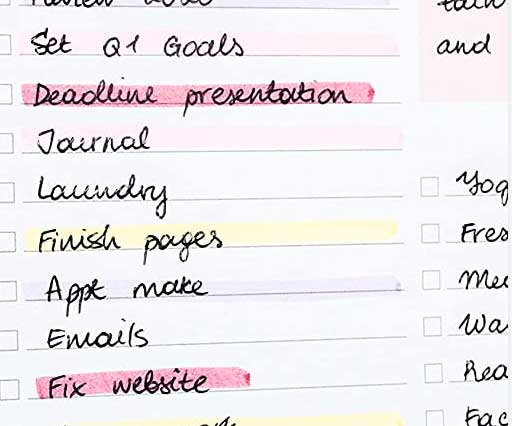6 Most Effective Time Management Techniques for Office Managers

How many times have you thought, “Thank God, it’s Friday!” only to realize that you still have a mountain of tasks ahead of you? How many times have all those administrative tasks spoiled your weekend?
As an office manager, your job does not end when the doctor leaves the clinic. You continue to supervise operations, making sure that everything works like a well-oiled machine. That includes a wide range of activities, from administrative tasks to appointment scheduling. As such, you need to manage your time well to make the most of your time and ramp up your productivity.
Here are some time management techniques to help make your tasks a breeze to complete:
1. Use the Eisenhower Method.

The Eisenhower method is a priority matrix that involves classifying tasks as important or urgent. You might think that these two are synonymous, but there is a big difference between them.
Important activities allow you to move forward in achieving your professional or personal goals. Meanwhile, urgent activities demand immediate attention, but they are usually done for someone else. Not all urgent tasks are important, and important tasks are almost always never urgent.
You should segregate your tasks into four categories. The first one is important and urgent tasks that should always take priority. The second one is important but not urgent tasks, which should be given ample time to be completed. Consider delegating tasks in the third category, which are urgent but not important. Avoid the fourth category at all costs since they are not important and not urgent.
The Eisenhower Principle helps you overcome the tendency to do urgent but unimportant tasks. It also gives you enough time to do important activities necessary to achieve your own goals.
2. Create daily and weekly plans.
It is nice to be spontaneous, but not when you are trying to organize your workload. Planning your schedule can help you focus on the things that you have to do in each time frame.
Before the week starts, take a few minutes to jot down your goals for the week. These should go with activities that you need to do to achieve those goals. Try to keep everything balanced in that you make time for both work and leisure. Set a realistic time limit for each daily task to prevent you from procrastinating. Make sure that you incorporate breaks in your schedule to prevent exhaustion.
It is also a good idea to allow some emergency time in case something urgent comes up.
3. Foolproof your routine.
Unless you have impeccable willpower, you are bound to stray off your schedule every now and then. Hence, it is best to create a time log and see the activities that are taking up most of your time. This will enable you to address the issues accordingly.
For instance, are you being bogged down by answering too many work emails? Allot a block of time for it in the afternoon after you have finished your more important tasks. Answering too many phone calls? See which time of day you receive the most number of phone calls and try to schedule your tasks around it.
You can fall into a comfortable routine once you know what is eating up your time. This will cut multitasking and keep distractions at bay.
4. Outsource and delegate.
Just because you are delegating some tasks does not mean that you are not a capable office manager. Sometimes, delegating your urgent but unimportant activities is a must. Simple tasks, like following up on patient appointments, can be assigned to your subordinates.
Another option is outsourcing, which will allow you to work smarter, not harder. You can outsource activities like staffing, payroll, billing, claims, accounting, and appointment setting. Outsourcing increases your efficiency and reduces your operational costs. It also allows you to concentrate on your important core tasks.
5. Automate tasks.
If you do not have an extra hand, then you might want to invest in cheaper automation services. You might think that repetitive tasks are easy to do, but they are huge time-wasters in reality. They compromise your efficiency and productivity. Automating these essential but boring tasks can save you time, money, and frustration.
A couple of things that can be automated include customer support and appointment reminders. An example of an automated scheduling app is ReminderCall. It allows you to send reminders to your patients through SMS, calls, and emails. This way, you no longer need to follow up with patients one by one because the app can do that for you. You can now focus your attention on more important tasks on hand.
6. Write everything down.
Of all the time management techniques here, this is perhaps the simplest one. Yet it is also one of the most important as it has a huge effect on productivity.
For one, writing down your plans and schedule helps you to remember things. The act of writing allows your brain to process information and remember it for a longer period of time. It also allows your brain to unload, letting you concentrate on the task at hand. This does wonder for your productivity.
Learning how to manage your time as a busy office manager is a skill that takes some time to learn. But once you get the hang of it, you will finally be able to finish your tasks on the dot. You will even have time to spare for the things that truly matter.